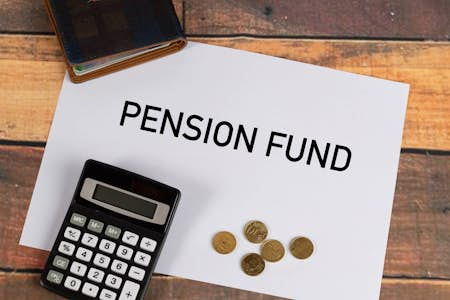Women have long earned less than men. Plus, they still struggle to smash glass ceilings in many roles and industries. Recently, it has been highlighted that women are also worse off in retirement and, on average, have around £7,000 less than men when drawing a pension.
Here we look at exactly why women have worse pension prospects than their male counterparts. In identifying why this inequality occurs, we also suggest ways women (and men) can change the current norm.
Maximise your retirement fund with our panel of pension providers. Click on your chosen provider to get started!
Why do women have worse pension prospects?
Here are the three main reasons why women have worse pension prospects than men.
Career breaks
It is still relatively normal for women to take a break from their careers when they start a family. As a result, they are no longer working and do not contribute to a pension plan. Men, in comparison, are far less likely to take any parental leave over the two-week statutory paternity leave. While shared parental leave is increasing in usage in the UK, it is still unusual.
Plus, when women return to work, they are more likely to return in a part-time capacity. Or in a role that puts in fewer hours and so earns less. A cumulative effect builds up here. Not only are women not paying into their pensions during their career break, but they then go back to work at the same entry point where they left their job. Their earning potential has stalled for a few years, and they are no further on in their careers. However, their male counterpart has continued to work up through the ladder while still paying into their pension.
Industry
Where women work is also a significant contributing factor to why women have smaller pension pots than men. Women are more likely to work in lesser paid roles in the lower-paying industries. The result is clear. Even if those women pay into their pension pots as early on as possible, they still will not be putting as much away as men in better-paid industries will.
Gender pay gap
Finally, even if industry and career breaks are removed from the issue, the remaining problem of the gender pay gap still exists. Even when they are in the same roles as men, women are historically and presently still paid less. Having a smaller paycheck each month materially reduces the amount women can pay into a pension each month. That has nothing to do with what decisions women make about family life or job choices. It simply stops women from being able to pay more into a pension than they otherwise would.
What can women do about it?
Arguably, the above issues are problems, which are likely to continue for the foreseeable future. So what can women do at an individual level to improve pension prospects?
Invest
Women are historically risk-averse investors. That does not, however, make them less likely to make sound investment decisions. Women have also traditionally been seen to be good investors. Women should not shy away from tackling their pension prospects head-on. They can do so by choosing pension funds or any other investments that more appropriately suit their needs and requirements. Women make up a much smaller proportion of the investment community, but nothing is stopping women from investing.
Improve knowledge
When it comes to pension planning and investments, improving knowledge is a crucial way women can help their situation. Educating herself about what options she has available to her and how pensions simply work means never leaving anything to chance. Fully understanding several vital topics is hugely advantageous. Therefore, women should swot up on the State pension, tax implications, and what a pension pot simply is. Additionally, understanding investments is a way that women can start to make sound investment decisions. Knowing what options are available to begin an investment portfolio is crucial. Doing so will help when breaking into the investment market.
Participate in auto-enrolment schemes
The requirements for being auto-enrolled in a workplace pension are being over 22 and earning more than £10,000. However, even if women do not hit those requirements, they can still ask to be included in the scheme. Given that women are more likely than men to be earning less than £10,000 a year, it is more likely that they will not be automatically enrolled in a scheme. Companies must allow a person to participate in a scheme when asked. Plus, if women earn between £6,240 and £10,000, employers have to contribute 3% on top into that women’s pension pot. It is like an automatic pay rise.
Financial self-care
Women also have to acknowledge that they are, at present, far more likely to be financially worse off than men. As a result, they have to be far more proactive in their money management to ensure that they are financially stable at any point in their lives. When it comes to retirement planning, that is even more so the case. So many of us are now aware of our need to take time out to ensure we are physically and mentally happy. However, financial stresses are one of the key motivating factors behind poor mental health . Taking time out to concentrate on how finances work is even more crucial for women, given the uphill battle they are likely to face.
Women and pensions - key takeaways
The plight of women and pensions is not likely to get materially better particularly quickly. The pace at which the gender pay gap is closing is simply too slow for the knock-on benefit to women’s pensions to occur at pace. As a result, women must take it on themselves to improve their pensions as much as possible with timely pension planning. The earlier they start, the better.







